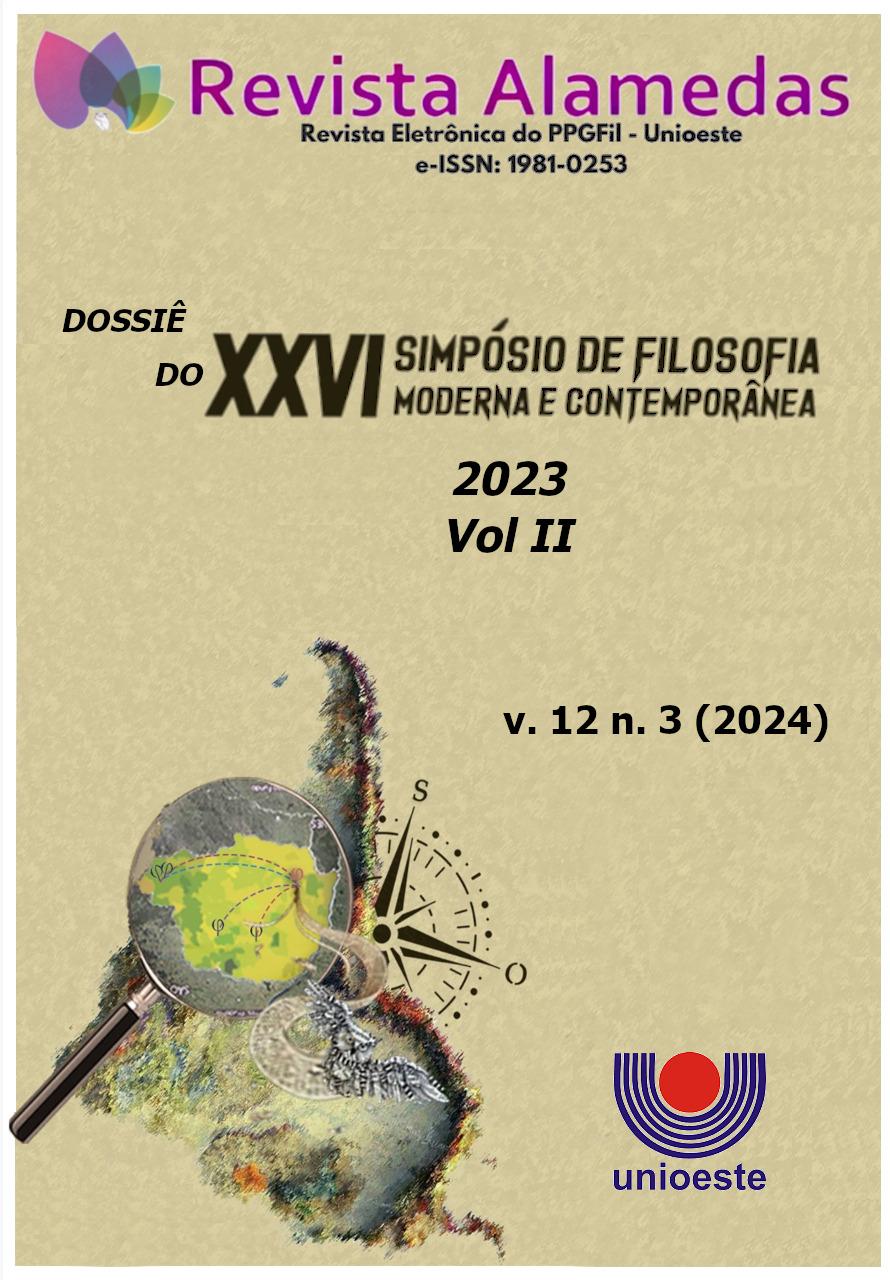Teoria dos sistemas intencionais
a mãe-natureza face ao conteúdo mental
DOI:
https://doi.org/10.48075/ra.v12i3.33216Palavras-chave:
Daniel C. Dennett, Intencionalidade, Posturas EpistêmicasResumo
O sucesso de uma empreitada analítica pode ser medido pelas consequências na estruturação de novas ideias e novos arranjos. Isso se dá com o conceito de sistemas intencionais (SI) - a postura física, a postura de planejamento e a postura intencional - de Daniel C. Dennett que contribui à presença e localização de crenças que moldam tomadas de decisão com congruentes ferramentas de pensamento, em continuidade com a árvore da vida presente na Mãe-Natureza, ao contrário do que postulam seus críticos. Dennett propõe a compreensão profunda desde o “colo de nossa mãe” ou da ação evolutiva; e, ouso sugerir, a apreensão mais destacada de nossa Mãe-Natureza. A tentativa interposta em seu escopo filosófico é a de carregar ferramentas aptas a dissipar o quanto alguns atributos “humanos” são tratados como lugar de assunto incerto, duvidoso e imponderável, que podem ser escrutinados pela engenharia reversa. As partes podem revelar o todo do processo de sobretude, o de atribuição de crenças e desejos às camadas formadoras do conteúdo mental; mas impedir ou obstacular especulações espiritualistas. Importante: o modelo dennettiano pode levar à inferência de que as diferenças na compreensão e pensamento é uma questão de grau. E a diferença fundamental está na capacidade de percepção e descoberta de regularidades, uma capacidade cognitiva que nos diferencia dos demais seres. Os SI são ferramentas elucidadoras dos diferentes comportamentos presentes no ambiente a nós circunscritos. Elicita-nos à percepção de sinais caros no ambiente, mas que, sem elas, pouco poderemos inferir e empreender. O que abre um caminho produtivo para o razoamento prático, inconteste prova porque tais ferramentas epistêmicas têm tido uso recorrentes em diversas áreas, como etologia cognitiva. Incursionamos brevemente nessa estruturação, sem discernir as críticas ao modelo, para apontar as contribuições da reinserção da intencionalidade, proposta por Dennett, como produto de mecanismos de tais sistemas intencionais.
Downloads
Publicado
Como Citar
Edição
Seção
Licença
Copyright (c) 2024 Alamedas

Este trabalho está licenciado sob uma licença Creative Commons Attribution-NonCommercial-ShareAlike 4.0 International License.
Aviso de Direito Autoral Creative Commons
Política para Periódicos de Acesso Livre
Autores que publicam nesta revista concordam com os seguintes termos:
1. Autores mantém os direitos autorais e concedem à revista o direito de primeira publicação, com o trabalho simultaneamente licenciado sob a Licença Creative Commons Attribution que permite o compartilhamento do trabalho com reconhecimento da autoria e publicação inicial nesta revista.2. Autores têm autorização para assumir contratos adicionais separadamente, para distribuição não-exclusiva da versão do trabalho publicada nesta revista (ex.: publicar em repositório institucional ou como capítulo de livro), com reconhecimento de autoria e publicação inicial nesta revista.
3. Autores têm permissão e são estimulados a publicar e distribuir seu trabalho online (ex.: em repositórios institucionais ou na sua página pessoal) a qualquer ponto antes ou durante o processo editorial, já que isso pode gerar alterações produtivas, bem como aumentar o impacto e a citação do trabalho publicado (Veja O Efeito do Acesso Livre).
Licença Creative Commons
Esta obra está licenciada com uma Licença Creative Commons Atribuição-NãoComercial-CompartilhaIgual 4.0 Internacional, o que permite compartilhar, copiar, distribuir, exibir, reproduzir, a totalidade ou partes desde que não tenha objetivo comercial e sejam citados os autores e a fonte.


